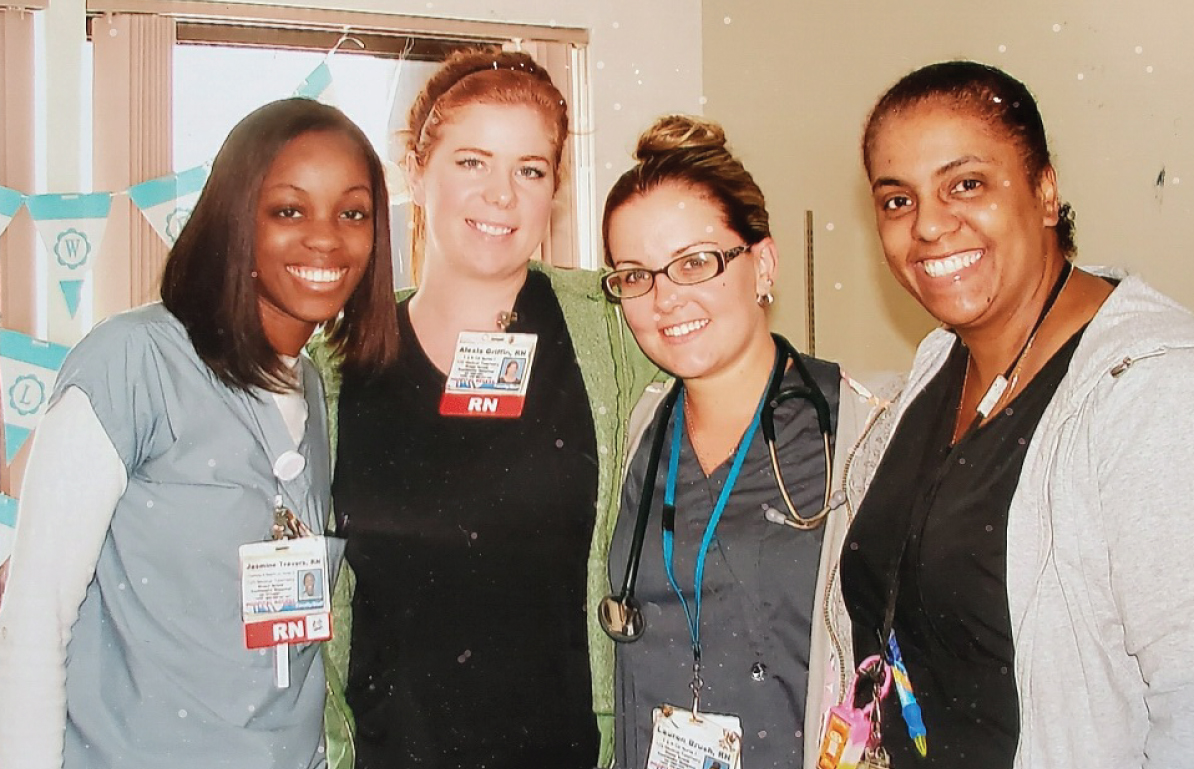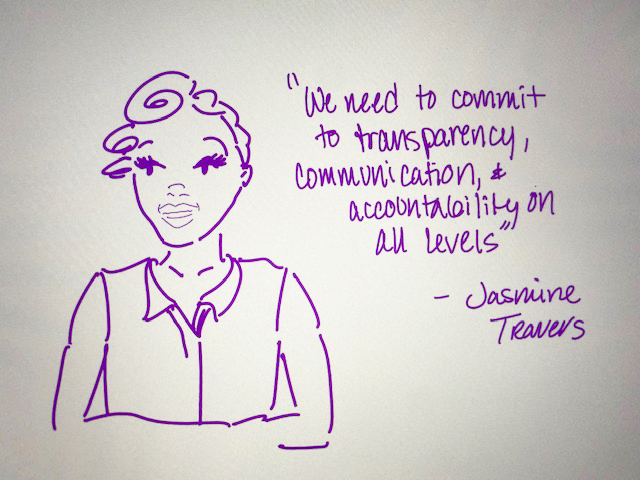
For many, nursing is a calling. It’s an opportunity to be on the front lines of care, helping and healing, counseling and connecting. But more and more, nurses also play an integral role in driving necessary change to improve the health-care system. That’s why students at the NYU Rory Meyers College of Nursing learn to provide exceptional care in the operating room—and use their training to effect essential change in the field. And mentors like Jasmine Travers, an NYU Meyers assistant professor, are leading the way.
“There’s so much I love about nursing. I love feeling that every patient is meant for me. I love establishing that bond and hearing those stories,” affirms Travers. “At the same time, I’ve seen the inequitable care many patients of color experience. Additionally, I’ve seen how unfairly nurses are treated based on their race or ethnicity. And that’s spurred me to advocacy.” Now she combines teaching, research, and activism to shape a more equitable environment for patients and nurses alike.

From the OR to the Classroom
Travers’ mother was a nurse. So Travers knew from a young age that she, too, wanted to pursue a career in caregiving. First, she interned in the operating room. Then, she moved to critical care. And while she loved her work, she quickly realized not everyone is welcome in the health-care environment. One day, a doctor would casually question a Black patient’s need for pain medication. The next, a speciality unit wouldn’t hire a Latina nurse despite her qualifications.
In response, Travers decided to pursue her PhD in Nursing “to change care delivery at the macro level. I wanted to develop knowledge and have that knowledge translate into policy and practice.” After graduating from Columbia University and completing two postdoctoral fellowships, she came to NYU Meyers to teach. “I knew they had the support, research facilities, and mentorship to let me spread my wings,” she explains. There, she taught classes like Adult and Elder Nursing II and Leadership and Management in Nursing.

From Advocacy to Policy
Today, Travers advocates for equitable patient care and a diverse nursing workforce while guest lecturing on topics like disparities in health care, the disruption of aging, and engagement in health-care advocacy. Her work focuses on mitigating health disparities and improving care access and outcomes for vulnerable populations, particularly older adults. “Access isn’t just financial resources,” Travers explains. “It’s making sure people have knowledge and awareness of all the services available to them. Further, it means making sure these services are actually meaningful to older adults.”
In October 2021, Travers received a grant from the National Institute on Aging. She’ll use the funds to study disparities in nursing home use and care among Black and Latinx older adults. While most older adults prefer to stay at home while they age, nursing home use among Black and Latinx people is disproportionately high. A fact revealing inequitable processes and services. Travers plans to develop a tool to identify these populations’ needs so they can age comfortably in place. And she’s not stopping there. She recently joined the advising panel for AARP, which plans to make long-term services and support more equitable. “I want to influence policy and access to needed resources in a community setting as well as understand what we need to prioritize,” she adds.
From Students to Nurses
As a nurse, Professor Travers strives to instill empathy, knowledge, and leadership in her students. In addition, she works to nurture their hunger for learning and build their confidence. “I want all of my students to be confident in who they are, what they know, and what they can bring to the table,” she says. Many aspiring nurses refrain from speaking up and speaking out, but “if you want to really own your patient’s care and effect positive change, you need to be at that table,” says Professor Travers. “You are the patient’s eyes and ears. So you need to be at the table. And, more than that, you need to contribute to the menu. It’s one thing to listen; it’s another to actually speak, ask questions, and let people know who you are.”
So for anyone still on the fence, who should consider a career in nursing? “The real question is, ‘Who wouldn’t make a good nurse and who shouldn’t go into nursing?’” muses Professor Travers. “The great thing about nursing is that it’s so dynamic. You can do so many different things and care for so many different types of people.”



